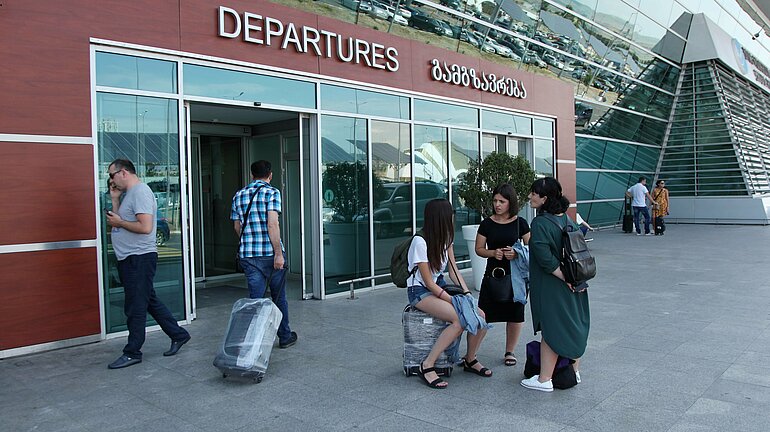Migration and Transformation in Metaphors – The Transnational Lifeworlds of Georgian Educational Migrants in Germany and their Families in Georgia
Migration and Transformation in Metaphors – The Transnational Lifeworlds of Georgian Educational Migrants in Germany and their Families in Georgia

Project description
Diana Bogishvili is carrying out her transnational research project in Germany and Georgia. She aims to show the transformative character of migration by determining its sociocultural effects on migrants and their relatives. Bogishvili seeks to identify the metaphors in spoken language that reflect the cognitive and emotional feelings of her interviewees. Language connects people with the same cultural identity by virtue of the bond forged by a shared linguistic heritage. The values integral to one’s own understanding of the world can therefore be influenced by the conceptual metaphors people unconsciously absorb and use to visualise their world. Metaphors are carriers of cognitive and emotional structures that also shape people’s actions. This study shows how the ‘metaphorical thought patterns’ inherent in figures of speech build an imaginary bridge between the interviewed migrants and their family members in the country of origin, thus connecting them in their multi-local space. Biographical interviews with Georgian educational migrants in Berlin and their family members in Georgia form the bulk of the data collected.
The project is registered as a PhD thesis at the Berlin Graduate School of Social Sciences at Humboldt-Universität zu Berlin and supervised by Professor Magdalena Nowicka (Humboldt-Universität zu Berlin) and Professor Gwendolyn Sasse (ZOiS).
Methodology
- biographical-narrative interviews
- multi-sited ethnography
- metaphor analysis
Key questions
- How do migrants’ lived reality and space of experience compare with those of their relatives in the country of origin?
- Which of the activities that characterise the transnational reality are particularly important for actors operating across borders?
- What kinds of transformations are induced by migration and how far-reaching are they?
